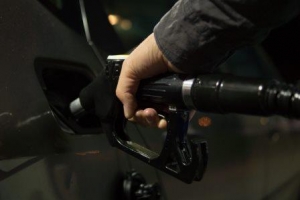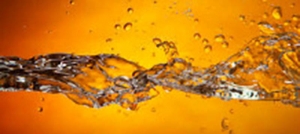For years Gasoline was very stable. Today fuel tank and boat owners are finding lots of water and fungus in GAS!
There are a couple of reasons this is happening now. It is important to find good marine fuel additives for gasoline especially when we put our boats away for any length of time.
What Are We Finding In Gasoline Today
As a tank cleaning company we get to see first hand the cause of engine failure due to fuel contamination. Here are some of the things we are finding in Gasoline today.
- Fungus – Fungus can shut down your engine if not taken out of the fuel much the same way that bacteria in Diesel can. Fungus will clog the filters in your fuel system and starve the engine for fuel.
- Ethanol – Attracts water which attracts organisms (Everything needs water to live on this planet).
- Varnish – As Gasoline breaks down it creates particulate and varnish
- Sand – Sand is found in a lot of the 22’ range small boats partly due to the location of vents
In Diesel fuel we find other problems
- Bacteria– Live bacteria cling to the side of a fuel tank with a slime over them
- Sludge– Dead bacteria die and sink to the bottom of the tank and create sludge
- Water– Condensation from humidity in the air and differences in temperature
Can Old or Contaminated Gasoline Be Restored

Inside of a typical tank with bacteria growing on the walls of the tank
The short answer is yes. We get a lot of calls from boat owners who have old gas in their boats.
Old gas will break down creating particulate which will accumulate in the fuel tank bottom. Cleaning the fuel tank and adding Octane Booster will restore the octane in old gas. This is not necessarily important in a lawn mower but in a boat that carries 80L of gasoline this is better than wasting the fuel.
Please keep in mind that nothing can replace a good Fuel Polishing service. There is no magic potion that will clean your fuel and tank other than actual tank cleaning.
Can Old or Contaminated Diesel Be Restored
Again yes, Diesel fuel can be restored. The sludge can be removed by decanting the tank which is the first step in the fuel tank cleaning process. The water can be removed at the same time and then the bacteria clinging to the walls can be removed as well during the polishing process.
At the end of the process an Cetane booster can be added to up the flammable properties, much like adding octane boosters to gasoline.
The Best Marine Fuel Additives For Gasoline
Old gas can be recovered with fuel polishing and an octane booster. If you call us to fuel polish your gas tank just make sure you have STP Octane Booster on hand which we can emulsify into your fuel and bring it back to new!
There are many good gas additives in the STP line of product that have proven their worth over many years.
If you have a Mercury Engine Mercury also has a line of Additives.
We do work for Bridgeview Marine in Delta and they install Mercury equipment. The additive they recommend is Quickare. You can buy it if you prefer to stick to an additive recommended by Mercury for your engine.
How Should I Apply Marine Fuel Additives
If you read the fine print on most additives the recommended application is by emulsification. This is easy to do when you are having your tank cleaned. If you are not having a tank cleaned then the next best thing is to make sure there is no water in the tank and add the chemical when you are actually adding fuel to the tank. The theory is that the fuel and additive will mix sufficiently while the fuel is going into the tank. The absense of water is important because contact with water will kill the effect of a biocide for instance.
Preventing Problems In Fuel Tanks
The best way to prevent problems in fuel is to avoid water in your tank. The best way to avoid water from accumulating in a fuel tank is the following:
- Keep the fuel level as high as possible when storing the vessel
- Use marine gas if you can find it – avoid any Ethanol gas
- Make sure you add a fuel stabiliser before putting your boat to bed for the winter
- Avoid creating a situation where there are temperature differences in the fuel tank area
Where Do We Go From Here
As I said earlier, there is no magic potion. Dealing with Gasoline or Diesel in tanks today requires a three pronged approach and additives are only part of the equation. Good housekeeping, Maintenance, Prevention and Additives all play a part in keeping your fuel clean. This is the life blood of your engine and with the price of new engines today a little maintenance goes a long way. You can pay for maintenance – Average fuel tank cleaning is $1400 all in – or pay for a new engine – $40,000 installed by a professional.
Safe Boating is dependent of keeping your equipment running at all times.
Happy Boating!




 We use
We use 
